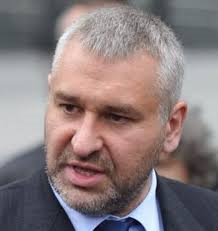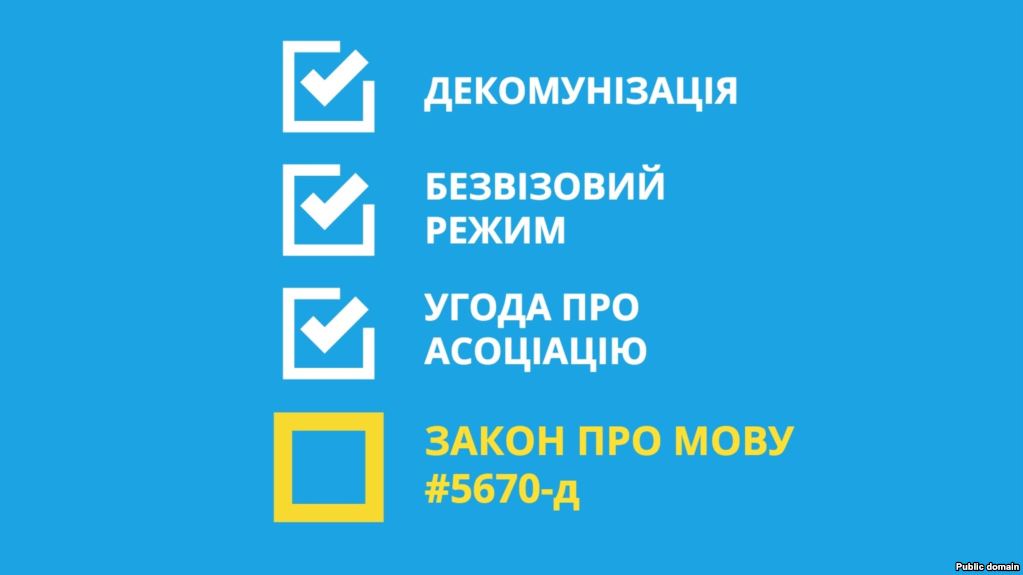by Mykola Myrnyi
Russia continues to kidnap and persecute "inconvenient" Ukrainians. The case of Nadiya Savchenko is not the first by far and probably not the last. Experts believe that international courts could restrain Russia and free the Ukrainian hostages. "Never in my life did I think that this could happen to my nephew," Sofia Postuha says, wiping away tears." This is now the third month that her nephew Yuriy Yatsenko and his friend Bohdan Yarychevskyi have been imprisoned in the Kursk Oblast in Russia in a special institution for persons slated for deportation. Yatsenko is a law student at the Lviv Ivan Franko National University and Yarychevskyi is a graduate of the same university. The Lviv residents were arrested by Russian police on May 6, in Oboyan in the Kursk Oblast. The Federal Immigration Service accused them of violating Chapter 2, Article 18.8 of the Code of Administrative Violations of the Russian Federation -- "Violations by foreign nationals entering or staying in Russia." Bohdan Yarychevskyi and Yuriy Yatsenko When they first entered Russia by taxi, the two men indicated a personal reason for their trip on their immigration cards. They then rented a car and drove around the Kursk and Belgorod oblasts and settled in a hotel. One of the men told the Oboyan district court that they wanted to observe the quality of life of Russians. The court decided that tourism was the real purpose of the young men's trip. The judge then fined Yuriy Yaksenko and Bohdan Yarychevskyi 2,000 rubles (for the discrepancy in the stated purpose of the trip -- Ed.) and ordered them expelled from Russia. However, the deportation service has been in no hurry to carry out the order, and service employees say they lost the passports of the Ukrainians. "Recently the Ukrainian consul came to see them at the institution and created temporary documents for their return to Ukraine. Therefore, there is absolutely no reason for them to be kept there any longer," Yatsenko's classmate Ostap Kumanskyi explains. He adds that on May 22, masked FSB (Federal Security Service) employees took Yuriy to a wooded area, where they beat and tortured him, demanding that he confess to transporting and storing explosives. Sofiya Postukha Attorney Nazar Kultchytskyi is convinced that the young men's deportation is being delayed in order to give the FSB more time to "beat out" of them confessions to crimes they have not committed. "The FSB took them out of the deportation center and conducted these interrogations," Kulchytskyi says. "However, we must begin with the (court's) refusal to institute criminal proceedings (against the FSB -- Ed.) by charging them with the beatings. The FSB states they have no documentation. Now if the FSB is taking them and interrogating them, then these interrogations must be conducted within the criminal case or there should be some kind of other documents -- for example, the interrogation protocol, etc. There is nothing like this. The only document that exists is a decision to dismiss the criminal case (against the FSB) made by the chief of police. If Yatsenko and Yarychevskyi are not released soon, we will definitely appeal to the European Court," he concludes. Russian police have refused to provide any legal assistance to the two men since their arrest. Finally, out of desperation, Yuriy Yatsenko cut his veins and stomach to demand legal representation. He described his ordeal in a phone conversation with his father. "After the arrest, they refused to provide an attorney, and on May 22 they took me away and beat me. They threatened to use violence again. I realized I would not be able to endure it again. The following day I cut my left wrist with my right hand and also cut my stomach. I think I must have lost around 400 grams of blood. I was dizzy, I fainted, I felt weak. I thought it was the only thing I could do to make them begin to respect my rights. After I did that, the violence stopped and they gave me a lawyer." Nazar Kulchytskyi says the beatings stopped only after the Ukrainian consul was able to come to the deportation center. When he arrived he discovered there were 40 more Ukrainians there that the consulate did not even know about. The attorney is convinced that a new trend has started in Russia whereby local law enforcement employees see a "Pravyi Sector" (right wing party in Ukraine -- Ed.) representative in every Ukrainian. There is a deliberate effort to intimidate and harass Ukrainians, he says. Currently 21 employees of Russia's Investigative Committee are working on the so-called "big Ukrainian case," which plans to charge Ukrainians in murders, use of prohibited means and methods of war, kidnappings, and also the obstruction of legitimate activities of journalists. According to previous data, the investigators have already conducted 17,915 interrogations, with 11,168 from witnesses and 5,443 from victims.




